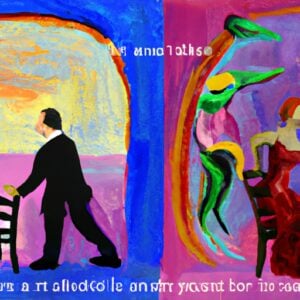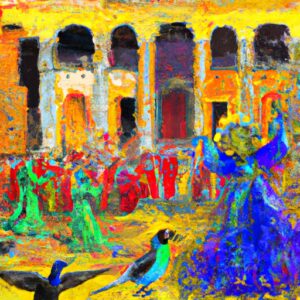What is a mano a mano in Italian?
To get in the mood for today’s post, listen to this song: A mano a mano written by Riccardo Cocciante and sung by Rino Gaetano.
Focus on this part of the lyrics:
A mano a mano ti accorgi che il vento
Ti soffia sul viso e ti ruba un sorriso
(…)
E a mano a mano si scioglie nel pianto
Quel dolce ricordo sbiadito dal tempo
Di quando vivevi con me in una stanza
(…)
E a mano a mano mi perdi e ti perdo
(…)
E a mano a mano vedrai con il tempo
Lì sopra il suo viso lo stesso sorriso
(…)
Here’s the translation:
Little by little you realize that the wind
Blows on your face and steals a smile from you
(…)
Little by little crying melts
That sweet memory, faded by time
From when you lived with me in a room
(…)
And little by little you lose me and I lose you
(…)
And little by little you’ll see, over time,
On your face the same smile
As you can see, there’s a recurring expression: a mano a mano. You probably guessed by looking at the lyrics that it means little by little.
In today’s post, we’re going to focus on an expression that comes from that expression: man mano che.
What does man mano che mean in Italian?
To understand what man mano che means, we have to focus on a mano a mano, little by little. In other words, it means gradually.
Here’s an example:
A mano a mano la faccenda si faceva più interessante.
Little by little the matter was getting more interesting.
We could even say mano a mano without the first a because it’s easier and shorter.
Now that you understand this, it’ll be easier for you to understand why and when we say man mano che.
We use this expression when we want to link two different clauses and indicate that something happens when something else is taking place, as you can see below:
Man mano che s’avvicinava l’inverno gli alberi si facevano più spogli.
As winter was coming in, trees were becoming more and more leafless.
As you can see, we translated man mano che with a simple as. It could also be translated as while.
As you can see, both a mano a mano and man mano che carry a slightly similar meaning which is related to time.
You might be wondering why we say man mano che instead of mano a mano che.
Well, once again, it’s just because it’s shorter and faster.
We’re lazy, right?
Man mano che: examples
Let’s now have a look at some examples:
Mescolate man mano che aggiungete il latte.
Stir as you add the milk.
La personalità si sviluppa man mano che cresciamo.
Personality develops as we grow older.
Questa attività diventa sempre più difficile man mano che andiamo avanti.
This activity gets harder and harder as we go on.
Man mano che i giorni passano, capisco meglio le cose.
As days pass by, I understand things better.
Man mano che invecchia si dimentica sempre più le cose.
As he gets older, he forgets things more and more.










2 Responses
Lesson 238 Man mano che
Given mano a mano can mean ‘little by little, then it seems you might also be able to use ‘piano piano’, correct, or, is piano piano closer to ‘gradually’ rather than man mano che being more like ‘as’, or, ‘while’ (like mentre) ?
Ciao @donaldbell09@gmail.com!
In Italian, piano piano means slowly while mano a mano means progressively.